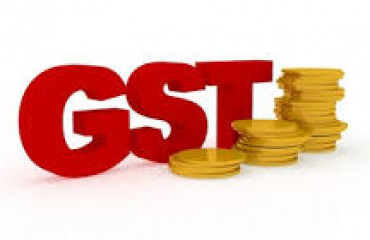
India’s online gaming companies are dreading an upcoming decision by the government that could impose the highest goods and services tax (GST) on the fledgling industry.
India's online gaming companies are dreading an upcoming decision by the government that could impose the highest goods and services tax (GST) on the fledgling industry.
A group of ministers (GoM) led by Meghalaya chief minister Conrad Sangma, which is advising the GST Council on taxation of casinos, race courses and online gaming, is set to recommend 28% of GST rate on these platforms, Mint reported on Wednesday citing a person informed about the discussions in the ministerial group. Industry executives, however, fear that levying the highest GST slab on online gaming could have a significant impact on the sector, which is still at a nascent stage. The GST Council is yet to be notified about the change in taxation norms.
Online betting games are already subject to 28% GST, while others pay 18%. However, industry stakeholders said that the actual difference in the overall taxation could be much more than the current 10 percentage points.
India's online gaming industry has been tipped for exponential growth, going forward. Consulting firm KPMG said in a report in July 2021 that the industry was worth about $1.7 billion as of March 2021 and is expected to grow to more than $3.7 billion by March 2025.
Sameer Barde, chief executive of non-profit industry body E-Gaming Federation said the 18% GST levied currently is on gross gaming revenue (GGR), which is the margin between the amount wagered and the amount won by users.
Now, Barde said, the government is looking to charge a blanket 28% GST on the overall revenue of a gaming company, which includes prize pools of tournaments. A spike of such proportions could hit the industry hard, he said.
"Online gaming in India is a nascent sector, and taking such a large pool of money out of it would mean that companies in India would end up needing to charge even bigger percentages of commission to remain operational," he said. "This, as a result, would leave gamers with significantly smaller earnings than what they earn from tournaments right now," he added.
"The 400 million gamers come from diverse economic backgrounds. Listing the industry under the highest tax bracket will directly impact the gaming population, online gaming companies, and the sector as a whole," said Dilsher Singh, founder and chief executive of online gaming firm Zupee. The Mint report said the GoM's report to the GST Council is expected to recommend 28% GST on "all forms" of online gaming. This has also led to confusion about whether the tax will extend to other forms of gaming, including games of skill and chance. Supreme Court verdicts in India separate games of skills and games of chance in terms of legality and their treatment by regulators. Akash Karmakar, a partner at law firm Panag and Babu, said heavy taxation could be problematic, as India still makes up a small part of the global gaming economy.
"Yet again, just as we have seen with cryptocurrencies, the Indian government is taking a broad-stroke approach to regulate this sector, which missed distinctions between games of skill and chance, and online sports including future augmented reality titles. There is a lack of clarity on what comprises online gaming —and if games of skill and chance, which must be seen separately, would be clubbed together," he said.
"Online skill-based games must be treated differently from gambling or betting," said Amit Khaitan, co-founder of Quizbee, an online gaming platform. He added that formats and revenue models such platforms follow differ from games of chance.
